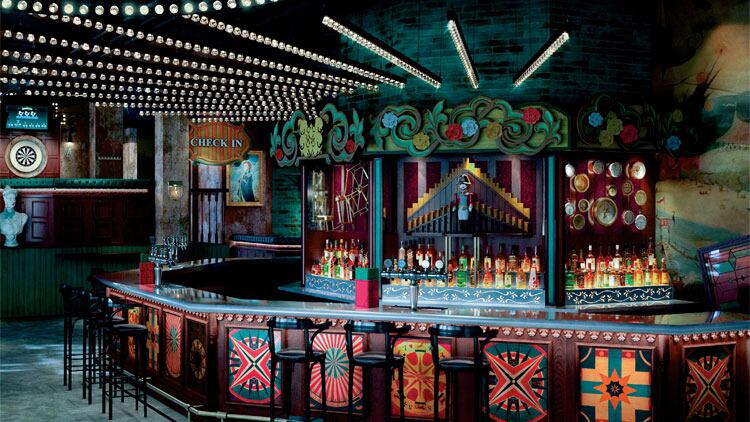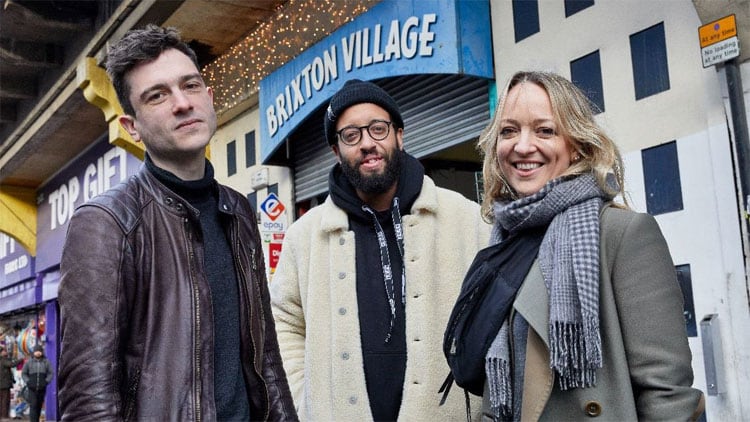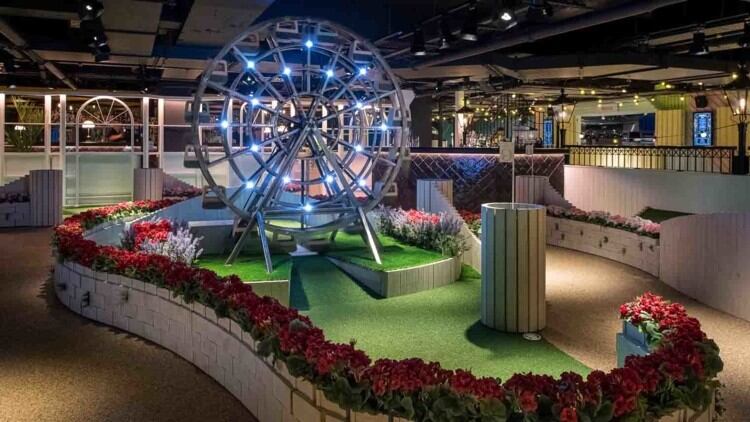BigHospitality's sister site MCA reports on how the company is aiming for even bigger things.
Steve Moore thinks he may be a masochist. “There is almost an element of self-harm involved when you decide to build something totally new,” he says in reference to setting up his own company, Flight Club, the bar and social darts brand that opened its fourth UK venue in London’s Victoria at the very end of last year. “Of course, I love it.”
He laughs now at how his previous career as a futures trader is often cited as the most stressful job in the world after airline pilot. “I look back to those days and think ‘that is not stress’. Leading people while you’re juggling deliveries and have walls falling down around you, that’s stressful.”
Thankfully, fast-paced is how Moore thrives. There was meant to be a six-month gap between the opening of the Victoria site and the company’s third UK venue, it’s first outside London, in Manchester. As is often is the case, however, planning and licensing did not respect that timetable and the openings ended up within just six weeks of each other.
There is unlikely to be much of a breather after those consecutive launches as the company invests all its profits back into the business to unveil something new every quarter, whether it be a new tournament, piece of technology or a venue.
“It’s all super dynamic, which is why we get people coming back weekly or fortnightly” Moore enthuses, speaking as rapidly as his preferred rate of development for the company.
“People put us in the activity bar sector but actually we are a home away from home – a nice bar with all the energy going on around it from the social darts. If you go to something like All Star Lanes or Crystal Maze, it tends to be more of an annual event.”
Like many children of the ’70s and ’80s, Moore has fond memories of pub visits with his, by today’s standards, then young parents, who still liked to go and enjoy a drink out, even with kids in tow. A packet of crisps, a bottle of Coke and people playing darts were key components.
Flight Club venues aim to recreate the intimacy and energy of those experiences, but the dartboard and ‘arrows’ are the only things that its trademarked Social Darts concept have in common with the original game. For a start, up to 20 people can play from each ‘oche’ and there are a variety of games that all use dart-tracking technology and instant scoring. It is, unsurprisingly, fast-paced and very conducive to social eating and drinking (think sharing plates and sips between throws).
Reinventing a pub classic
The concept also pulls in a client base that ranges widely in terms of age and background but breaks down to 55% male and 45% female. Last year, total group sales came to £7.4m with gross profit of £4m (although central and financing costs meant there was a total loss of £170,000). Moore says this breaks down roughly to 55% bar, 30% food and 15% on the games.
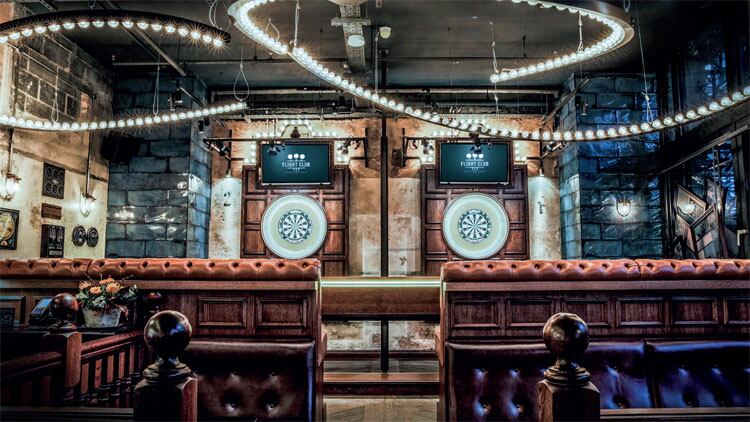
Maintaining the requisite high level of innovation, and the energy to do so, is possible because of the strength of the management team, says Moore. The organisation was deliberately top heavy from the off, reflecting the confidence in the concept of Moore and co-founder Paul Barham. Moore and Barham have been friends since meeting on a ski trip in their early 20s and together they witnessed the excitement of a group of young people playing the darts game ‘killer’ in a Devon pub, leading to their idea to reinvent darts.
Moore is a big believer in surrounding himself with talented people, ideally those with whom he has some connection and who know how to do the things he does not. He seems to have a gift for getting people to share his passion and wanting to be part of it. For instance, when he started trying to make Flight Club a reality, Moore recognised that never having run a licensed venue in his life could make things tricky. He contacted a friend whom he had not seen for 20 years, but who was general manager of a bar in London, and asked him for help. That friend, Dustin Acton, became operations director of the business, which now employs more than 150 people.
This approach of turning thought into action was something Moore honed from his much-documented circumnavigation of the globe in a fire engine. It started as a crazy idea but he spent three years seeing it through, roping in around 150 friends and other contacts to help him – some, like Barham, still work with him today. He was motivated to raise money for lung cancer charities following the death from the disease of his former firefighter father.
Moore did return briefly to futures trading after his epic trip but that taste of achieving what many said was impossible soon had him salivating to do something more spicy.
The art of the oche
Next on the cards will be the company’s fifth UK venue, in Birmingham’s Temple district, which is still subject to the not-so-dynamic duo of planning and licensing. Locations such as Leeds, Liverpool, Glasgow and Bristol are also on the hit list.
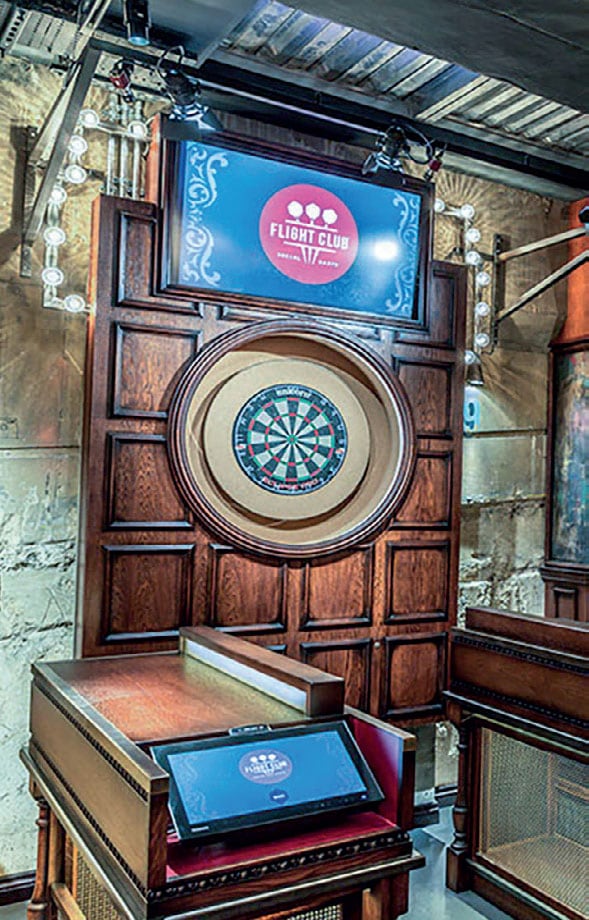
Characterful sites of between 6,000 and 11,000sq ft are the preference and the company will spend £3m to £5m on getting them customer-ready with the recognisably Flight Club oches nestled among each site’s uniquely designed bar space. The quality of the offer is another constant the company works hard to perpetuate – Moore says opening the first site five years ago in Shoreditch, with its particularly picky and well-served client base, was a good way to set standards high from day one.
Every function of the business has been kept in-house, including technology, marketing, recruitment and training and Moore says this is one of the reasons that staff retention levels are very high. The continuous development of the company creates a buzz, he says, as well as providing opportunities for career progression. Teams are appointed very early on for new sites so that they literally see it being built. He believes the vast majority of the team feel personally invested in the business, which creates a virtuous circle in the relationship between staff and customers.
Moore says the company is currently creating its own comprehensive CRM system to better track trade given the wide variety of group sizes and different day parts. The surprising success of weekend brunches and lunchtime trade, for example, has made average figures hard to gauge. The measure he gets most excited by is Flight Club’s Net Promoter Score of 89%, although he is also proud of its 2017 Amazon Growing Business Awards gong.
Detail in the darts
Moore is pumped up, too, about the ongoing potential to expand the brand further but is obsessed with ensuring that each Flight Club sustains the level of “energy and intimacy” he thinks is key to its success to date. Before opening in Manchester, he made it his mission to bring as many interested parties as possible to look at the London clubs and get their input on what works in their home city.
This attention to detail is clearly typical of Moore – before launching the first bar in Shoreditch, the team held about 250 focus group sessions to influence the operation, from the games and technology to the food. “By the time we opened, we already felt like quite a mature business,” he recalls.
As well as looking for new domestic sites, Moore says discussions are under way with several possible partners about taking Flight Club to a number of overseas territories including Australia, parts of Europe and China. Flight Club in Chicago is already operating very successfully, by all accounts. It is run under a US and Canada licence by Social Entertainment Venues, the activity-based entertainment company that also runs the Bounce ping pong brand and Puttshack golf bars and is headed by Adam Breeden, who was part of the original Flight Club team. It was agreed quite early on that he would take the brand Stateside separately.
Moore says it is a definite advantage that there is a lack of awareness of the traditional game of darts in many other countries, as they are not constrained by any preconceived notions of the kinds of people who may be interested in playing. There are other concepts within him, too, but he won’t be drawn on anything outside Flight Club at the moment.
For the time being darts is Moore’s main focus, and for very good reason. With his experiential concept he’s hit the bull’s-eye.
This is an edited version of a feature that first appeared in Restaurant magazine’s sister title MCA. Visit www.mca-insight.com for more information and to subscribe.

